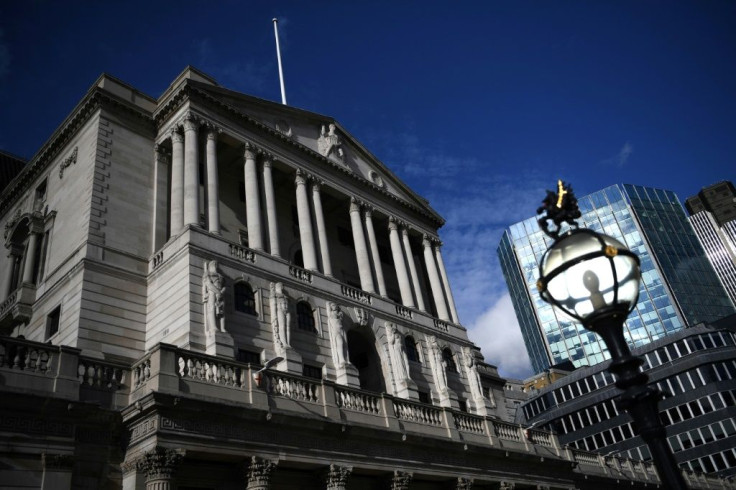New Bank Of England Chief Readies For More Action Against Coronavirus
The Bank of England's new governor, Andrew Bailey, said on his first day in the job on Monday that he was ready to take more action to tackle the economic fallout from coronavirus.
The BoE last week slashed its key interest rate and the government announced a package of measures to help businesses and households deal with the outbreak.
Bailey said the central bank was "very keen" to ensure that any temporary disruption does not cause long-term damage to the economy.
"That's something that we want to want to minimise and stop," he said in a pooled television interview marking his first day as governor.
"That's why you saw prompt action last week. That's why you will see prompt action again when we need to take it."
The BoE last week slashed its main interest rate to a record-low 0.25 percent from 0.75 percent -- its biggest cut since the global financial crisis more than a decade ago.
On Sunday night, it also took joint action with other central banks including the US Federal Reserve to pour money into the economy to help resist the financial shocks caused by the outbreak.
Bailey met Monday with British Finance Minister Rishi Sunak and Prime Minister Boris Johnson to discuss the global action ahead of a special videocall of leaders of the G7 nations, Downing Street said.
Bailey took over from Mark Carney, who served nearly seven years as governor -- a term extended by his desire to stay in post during Britain's turbulent process of leaving the European Union.
"Bailey certainly could not be taking over at the BoE at a more traumatic time. It could not be less of a case of being able to ease into the job," EY economist Howard Archer told AFP.

His first monetary policy committee (MPC) meeting will be on March 26, where analysts expect further emergency action over the virus fallout.
"We expect the MPC to cut bank rate again to its effective floor of 0.10 percent at its scheduled meeting on March 26," noted Pantheon Economics analyst Samuel Tombs.
Bailey was previously head of the UK's financial regulator where he faced strong criticism over his role overseeing investment scandals in Britain.
Parliament's Treasury Committee backed Bailey's appointment by the government.
But chairman Mel Stride, an MP in Johnson's Conservative party, expressed "a number of serious concerns regarding the performance of the FCA both before and during his time as its CEO".
Earlier this month, Bailey said he had "no regrets" over his time at the Financial Conduct Authority.
"I went in with my eyes open... it wasn't a job I applied for, don't regret it for a moment," Bailey told MPs who grilled him on his record.
"In terms of public service and public interest -- it's fascinating."
"I will say to anybody who is interested in (taking over at) the FCA, it's fascinating but it's hellishly tough at times, but that's the nature of it," Bailey added.
Earlier this month, the FCA admitted to a data breach in an embarrassing revelation for the regulator and Bailey.
The regulator said it had mistakenly published the details of around 1,600 consumers who had complained about the regulator, which is tasked with overseeing the conduct of Britain's key financial sector, including any data breaches by banks for example.
Canada-born Carney has been appointed the United Nations' special envoy on climate action and finance.
© Copyright AFP 2024. All rights reserved.











